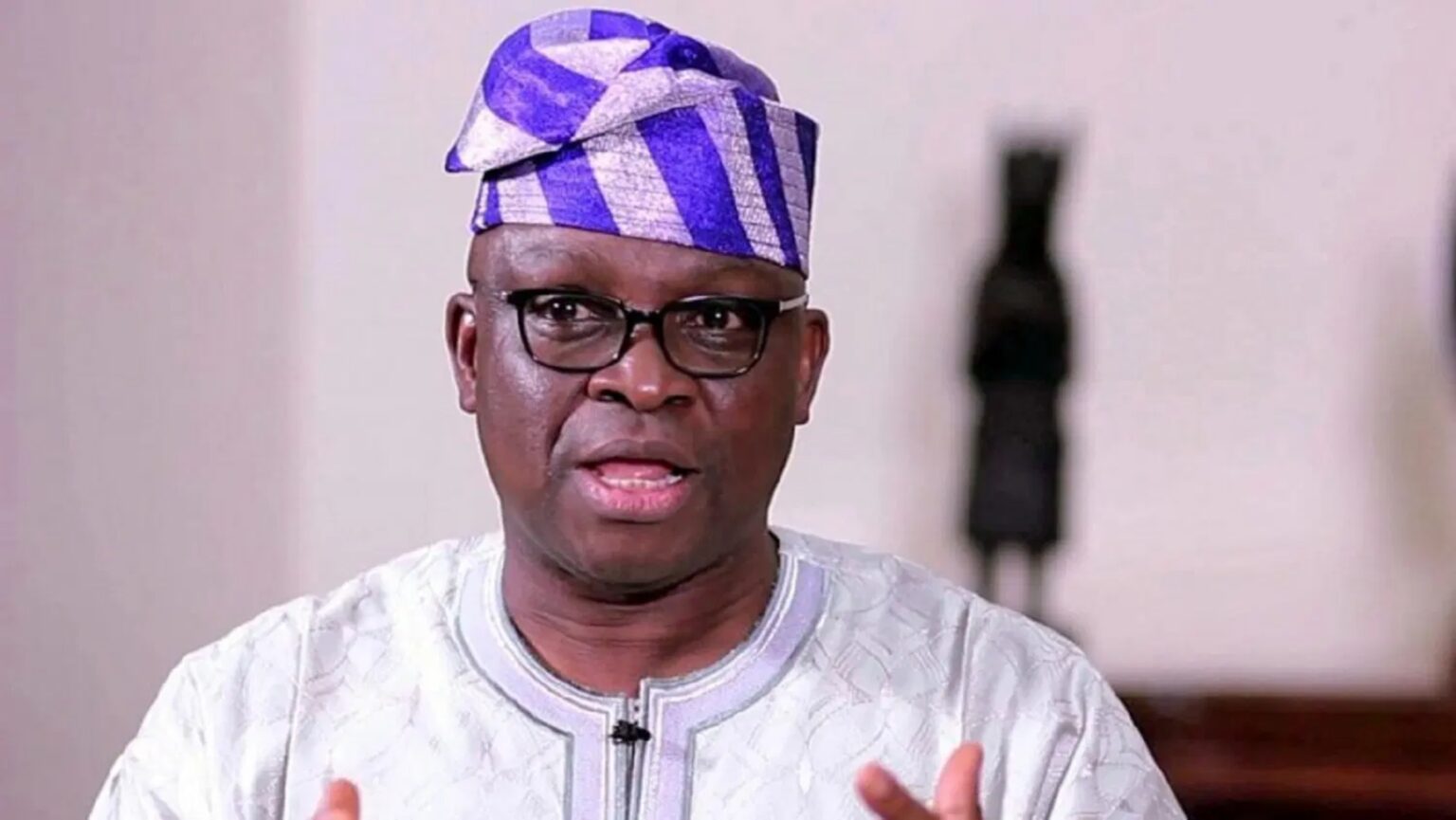The Federal High Court in Lagos has cleared former Ekiti State Governor, Ayodele Fayose, of all charges in a protracted money laundering and theft case totalling ₦6.9 billion.
Justice Chukwujekwu Aneke discharged Fayose after ruling in favour of his “no-case submission,” concluding that the Economic and Financial Crimes Commission (EFCC) failed to present sufficient evidence to warrant a continued defence.
The court’s decision highlighted that the EFCC could not establish a direct link between Fayose and the alleged crimes, nor did it build a prima facie case compelling him to further respond to the accusations.
READ ALSO: Fayose defends Tinubu’s economic reforms, cautions against expecting overnight miracles
The ruling comes after Justice Aneke reserved his decision on May 20, following extensive arguments from all legal teams involved.
Kanu Agabi, Senior Advocate of Nigeria, represented Fayose, while Olalekan Ojo, appeared for the second defendant, Spotless Investment Limited.
Rotimi Jacobs led the prosecution for the EFCC.
Fayose’s legal ordeal began with his initial arraignment in 2018 before Justice Mojisola Olatoregun, but the case was later transferred to Justice Aneke’s court.
He and his company, Spotless Investment Ltd, faced an 11-count amended charge that included allegations of money laundering and theft.
The prosecution’s case asserted that Fayose illegally obtained ₦1.2 billion for his 2014 gubernatorial campaign and received $5 million in cash from former Minister of State for Defence, Musiliu Obanikoro, circumventing official financial channels.
Furthermore, he was accused of laundering various sums, retaining, and utilising over ₦1.6 billion to acquire properties through proxies and companies like De Privateer Ltd and Still Earth Ltd, in violation of the Money Laundering (Prohibition) Act, 2011.
These alleged offences reportedly occurred during Fayose’s governorship and involved funds purportedly linked to the office of the former National Security Adviser.
During arguments for the no-case submission, Agabi contended that the prosecution had not established a foundational case against his client.
He pointed out that Abiodun Agbele, a key figure in the alleged transactions, was not jointly charged, which Agabi argued weakened the prosecution’s position.
READ ALSO: Why I visited Tinubu in Lagos – Ex Gov. Fayose
“The predicate offences on which these charges are based do not hold water,” Agabi submitted, emphasising that charges like criminal breach of trust and conspiracy require co-conspirators to be charged alongside the defendant, which was not done in Fayose’s case.
He therefore urged the court to conclude that Fayose had no case to answer.



